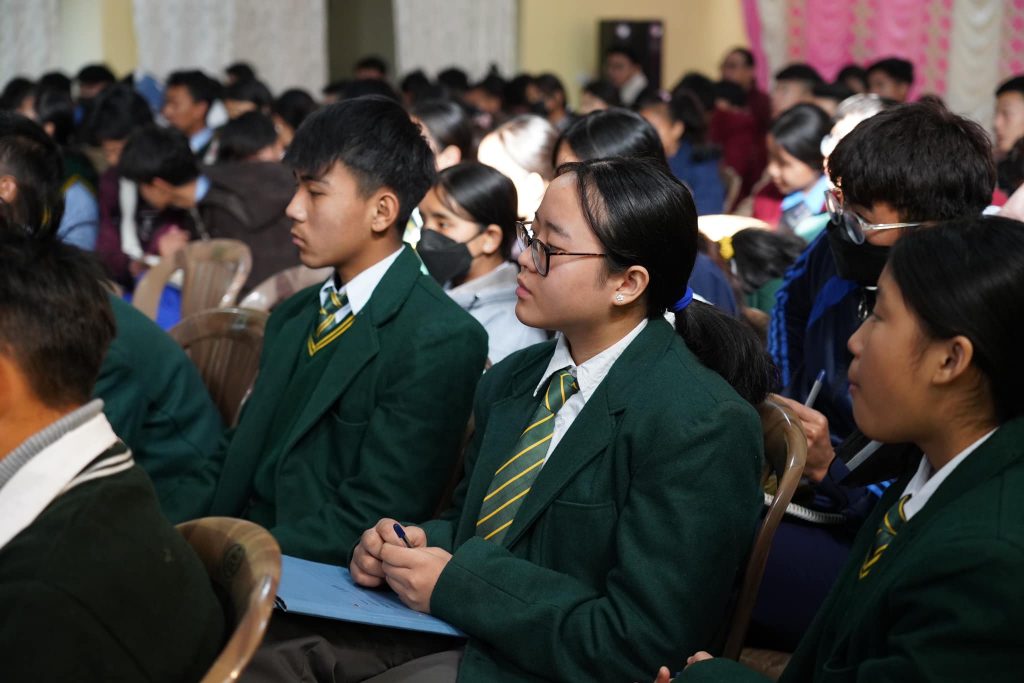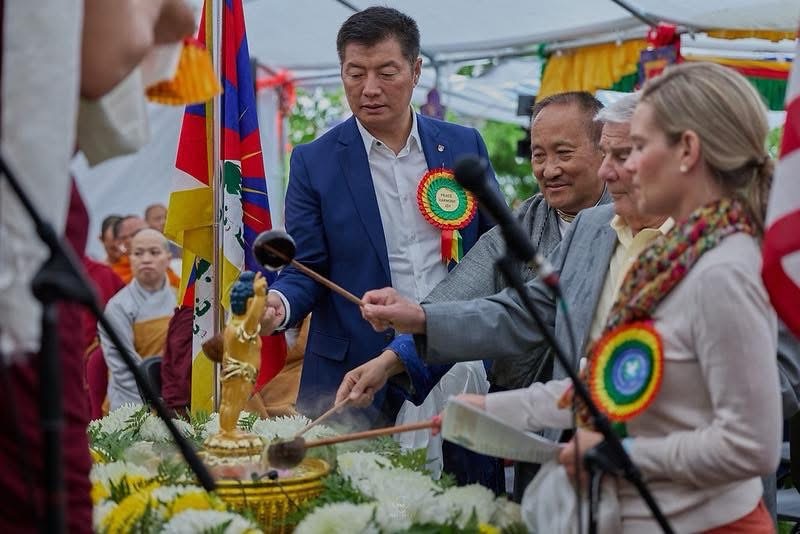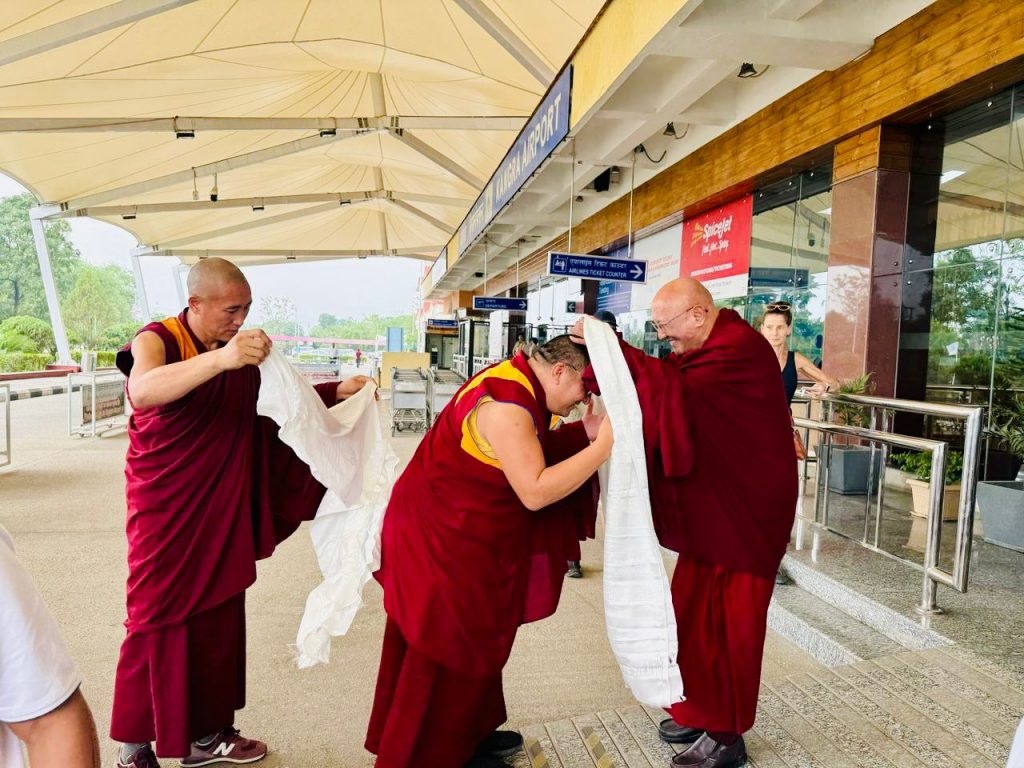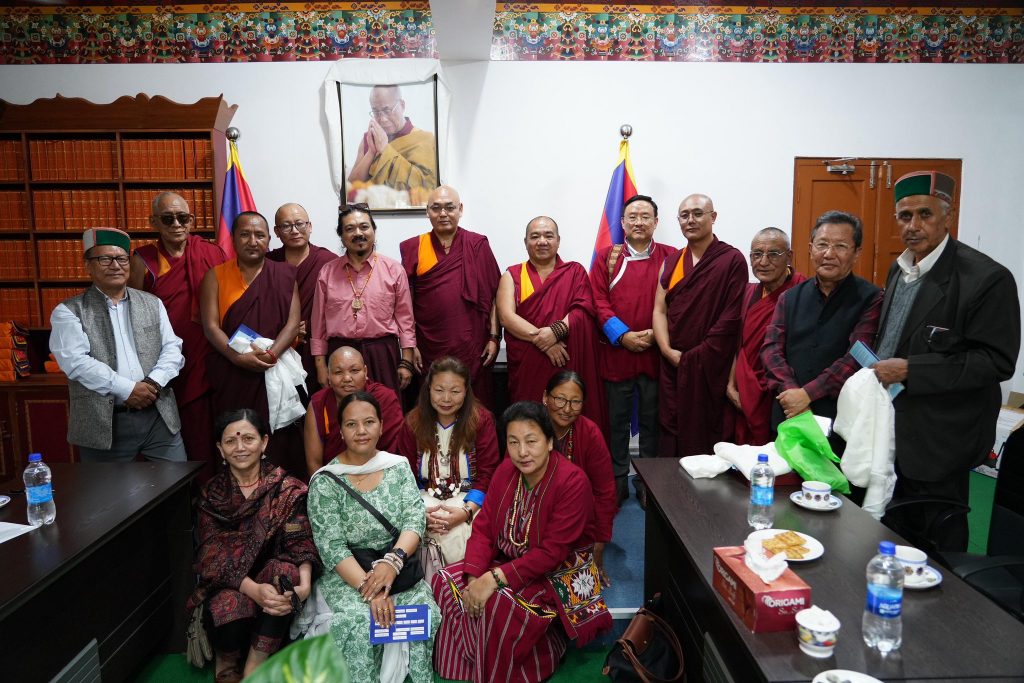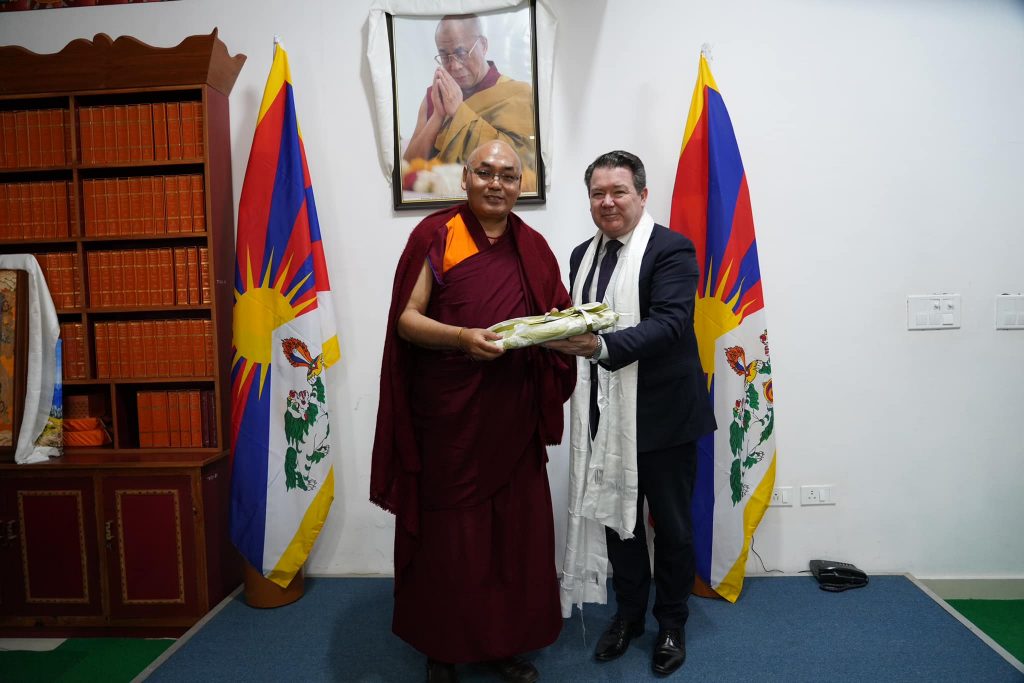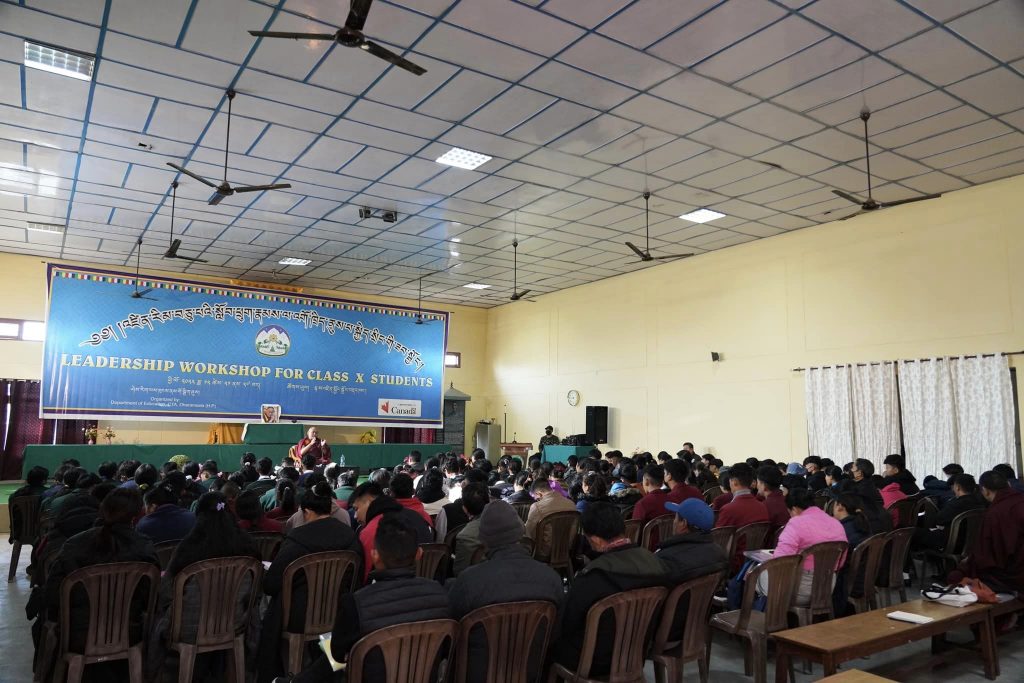
Dharamshala, 22nd December 2022: Speaker of the 17th Tibetan Parliament-in-Exile, Khenpo Sonam Tenphel, imparted the evolution of the Tibetan democratic polity at the leadership workshop for Class X students organized by the Department of Education of the Central Tibetan Administration at the administrative training centre near Dharamshala earlier today.
Speaking at the workshop attended by a total of 114 students from 27 Tibetan schools in India and Nepal, the Speaker started with the introduction of the etymology of the word democracy which comes from the Greek words ‘demos’, meaning people, and ‘Kratos’, meaning power. Likewise, he pointed out the most appropriate word in Tibetan that comes closest to the word democracy in English and further went on to explain the different types of democracy including direct democracy and representative democracy, followed by the challenges that democracy faces today.
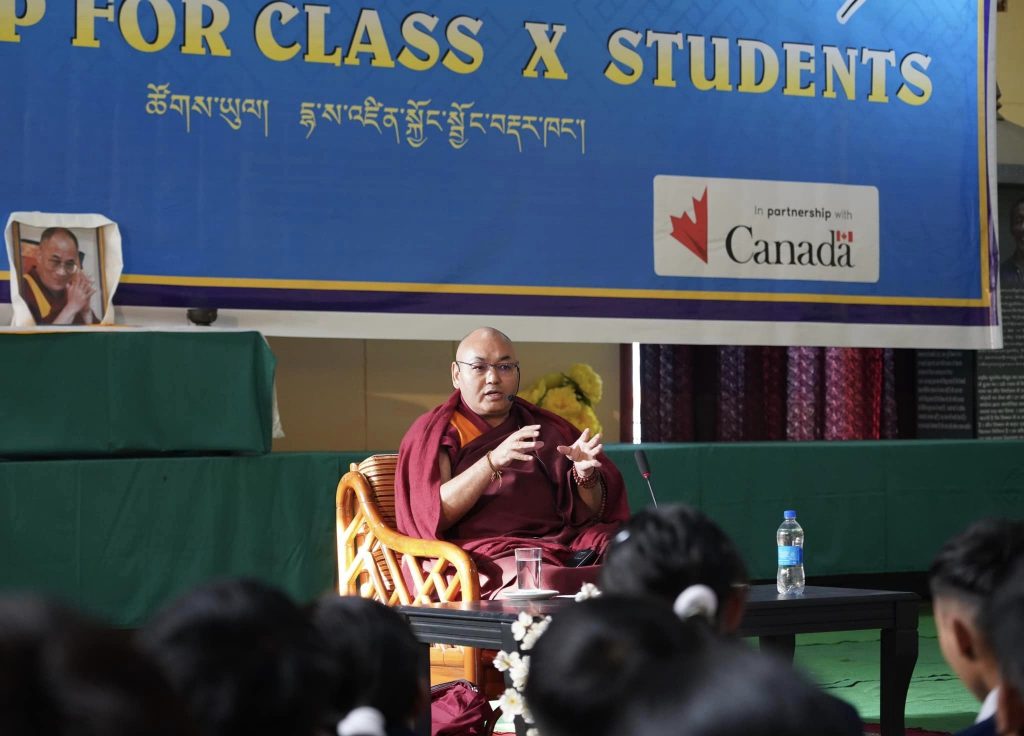
He also highlighted the evolution of democracy in Tibetan society from His Holiness the Dalai Lama’s constitution of the Reform Committee to introduce administrative and land reforms in Tibet as a step towards democracy which was interrupted due to the illegal occupation of the People’s Republic of China in the subsequent years.
The Speaker further spoke about the contradictory observations made by His Holiness Dalai Lama on the functioning of the Indian parliament during His visit to India in 1956 and on the Chinese Communist Party’s congress during His visit to China in 1954, out of which the democratic system of India greatly inspired His Holiness in adopting democratic values for a just society.
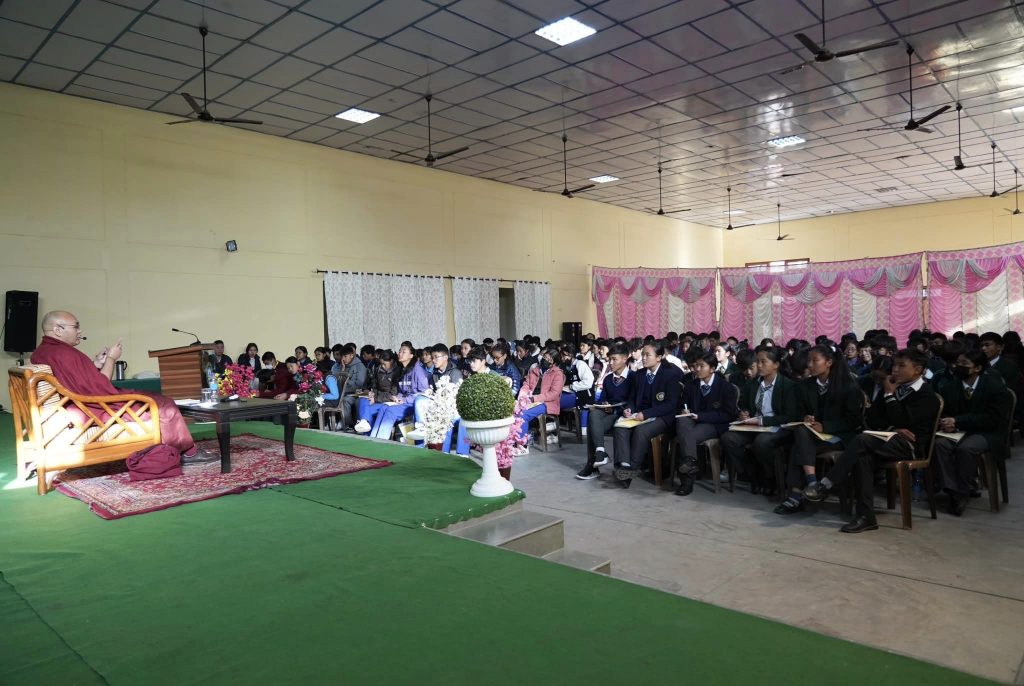
In continuation, the Speaker spoke about the submission of a solemn oath on a sworn statement at the sacred place of Bodh Gaya in 1960, vowing to be unwavering in straightforwardly following His Holiness the Dalai Lama, by the representatives from three traditional provinces of Tibet and four religious schools of Buddhism. During that time, His Holiness advised the Tibetans to elect three representatives each from their respective provinces and one from each of the four schools of Buddhism. Those elected representatives took oath on 2 September of that year as the first elected members of the Tibetan Parliament-in-Exile (then called the Commission of Tibetan People’s Deputies) and from that day onwards, the date is observed and celebrated as Tibetan Democracy Day.
Explaining the changes in the composition, duration, and functioning of the Tibetan Parliament-in-Exile, the Speaker explained the process of the adoption of the Charter of Tibetans in exile in 1991 and the current composition of the Tibetan Parliament-in-Exile which has 45 members including 10 representatives from each of the three traditional provinces of Tibet i.e., U-Tsang, Dhotoe, and Dhomey; two from each of the four schools of Tibetan Buddhism and the pre-Buddhist Bon religion; and two representing each of the Tibetan communities in North America and Europe; and one from Australasia and Asia (excluding India, Nepal, and Bhutan).
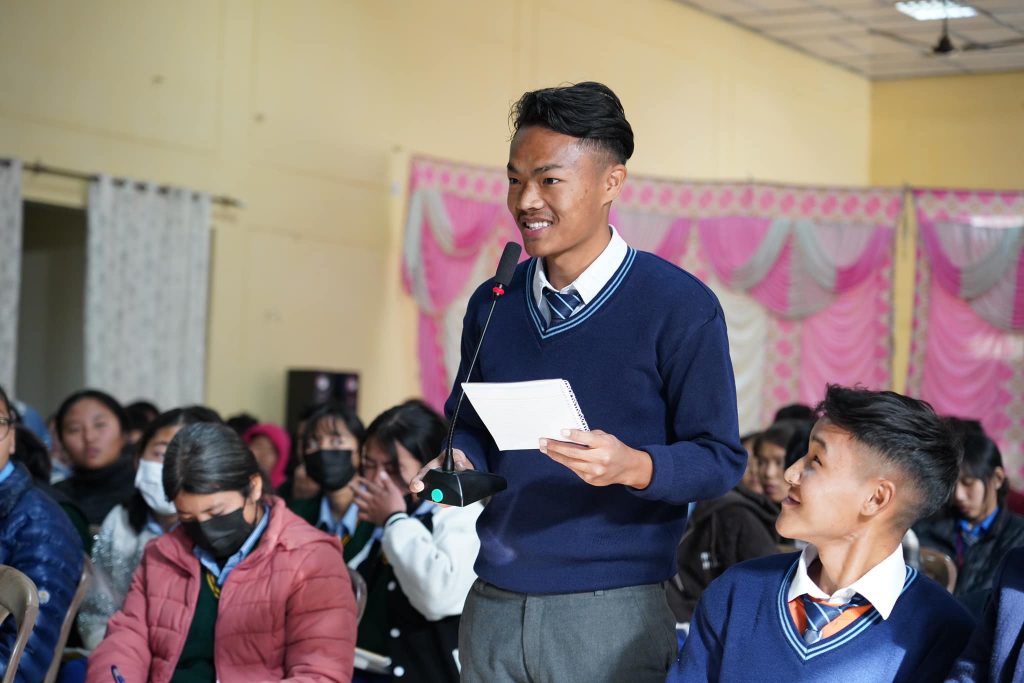
Reaching a milestone in the democratization process of the exiled Tibetans, in 2001, the first-ever Chief of Cabinet (Kalon Tripa) was directly elected by the Tibetan people, followed by the greatest landmark in Tibet’s history with His Holiness vesting all his political authorities to the elected leaders (Sikyong) to benefit Tibetans in the long-run and to make Tibetans pave the way to the full democratization process in 2011.
The Speaker explained the structure of the Tibetan democratic system with three pillars i.e. Executive (Kashag), Legislative (Tibetan Parliament-in-Exile) and Judiciary (Supreme Justice Commission) empowered with separate power and responsibilities to create a check and balance in the system. Likewise, in order to have free and independent functioning, the three autonomous bodies, the Election Commission, Public Service Commission, and office of the Auditor General, were also set up.
Finally, before answering questions and doubts raised by the students, the Speaker asked the students to understand the true aspect of democracy which is to have the right to freedom for yourself without hampering the freedom of others, and advised them to be diligent in exercising the precious rights of democracy in exile.
